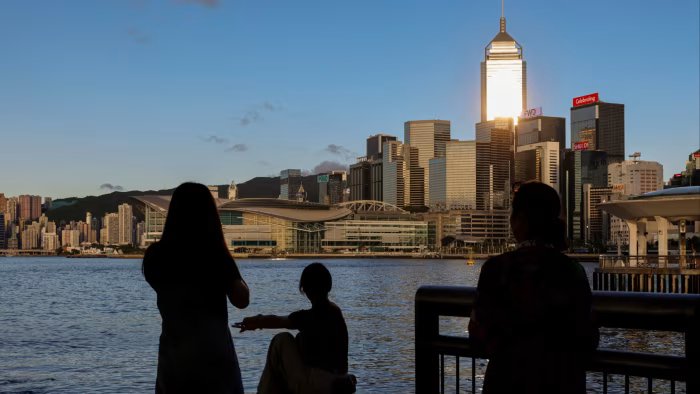Unlock the Editor’s Digest for free
Roula Khalaf, Editor of the FT, selects her favourite stories in this weekly newsletter.
Singaporean lender United Overseas Bank set aside its largest ever loan provision of S$615mn (US$470mn) on Thursday in anticipation of potential losses in the Hong Kong and US property markets.
South-east Asia’s third-biggest bank by assets, which traces its roots to Singapore’s Chinese community, said it had spotted “troublesome” areas in its Hong Kong and US commercial property loans and acted “proactively”.
“We conducted a thorough review of our portfolio,” said chief executive Wee Ee Cheong, who added that the bank had identified a “few accounts” that required close attention.
“We proactively set aside general allowances to significantly enhance provision coverage, backed by our strong capital base,” he said.
UOB reported a 72 per cent drop in third-quarter net profit to S$443mn compared with a year earlier. The bank said it was operating in a “challenging environment marked by narrowing interest margins and market volatility”.
Shares in the bank dropped as much as 5 per cent on Thursday before paring some of those losses. The group’s shares have fallen 7.5 per cent since the start of the year.
Hong Kong’s commercial property sector has been in the doldrums since the Covid-19 pandemic as rising US interest rates and a weaker local economy have damped demand.
Property developers in the city, which has some of the most expensive real estate in the world, have written down the value of their portfolios by billions of dollars and left banks holding rafts of non-performing loans.
HSBC last month said that Hong Kong’s commercial property sector continued to endure “challenging” conditions. It set aside $1bn against expected credit losses, including from Hong Kong and UK commercial property loans.
“Commercial real estate conditions remain challenging in Hong Kong and mainland China,” the bank said. “In Hong Kong, weak demand and oversupply of non-residential properties continued to put downward pressure on rental and capital values.”
Yet the revival of the territory’s capital markets this year and a few major rental transactions, including by Jane Street and Hong Kong Exchanges and Clearing, have spurred hope that the property market might be bottoming out.
DBS, Singapore’s biggest bank, also reported third-quarter earnings on Thursday. It said net profit fell 2 per cent year on year to S$3bn, though it generated record revenues. Its shares rose 3.7 per cent, extending its gains for the year to 26 per cent.

